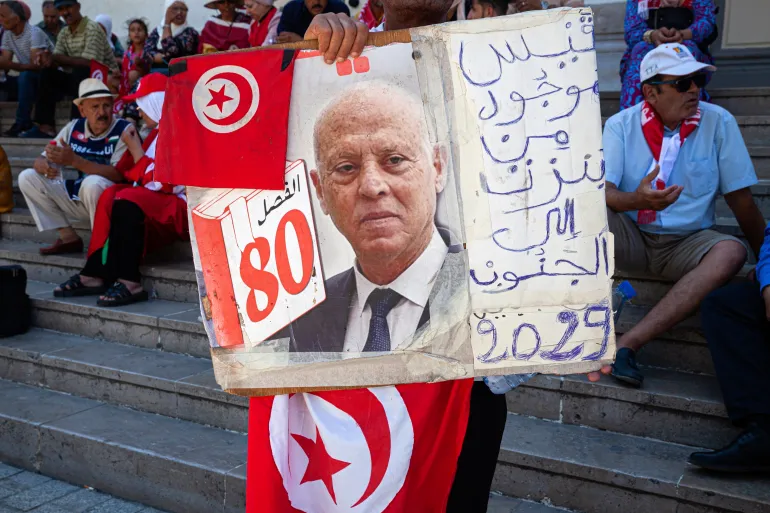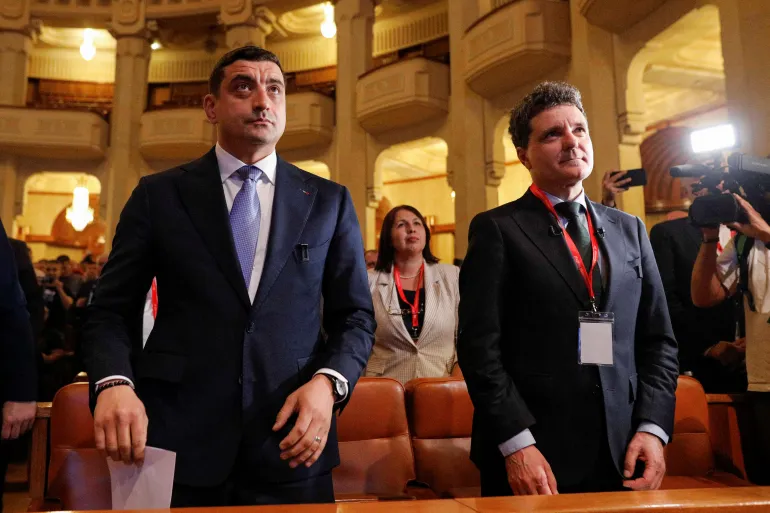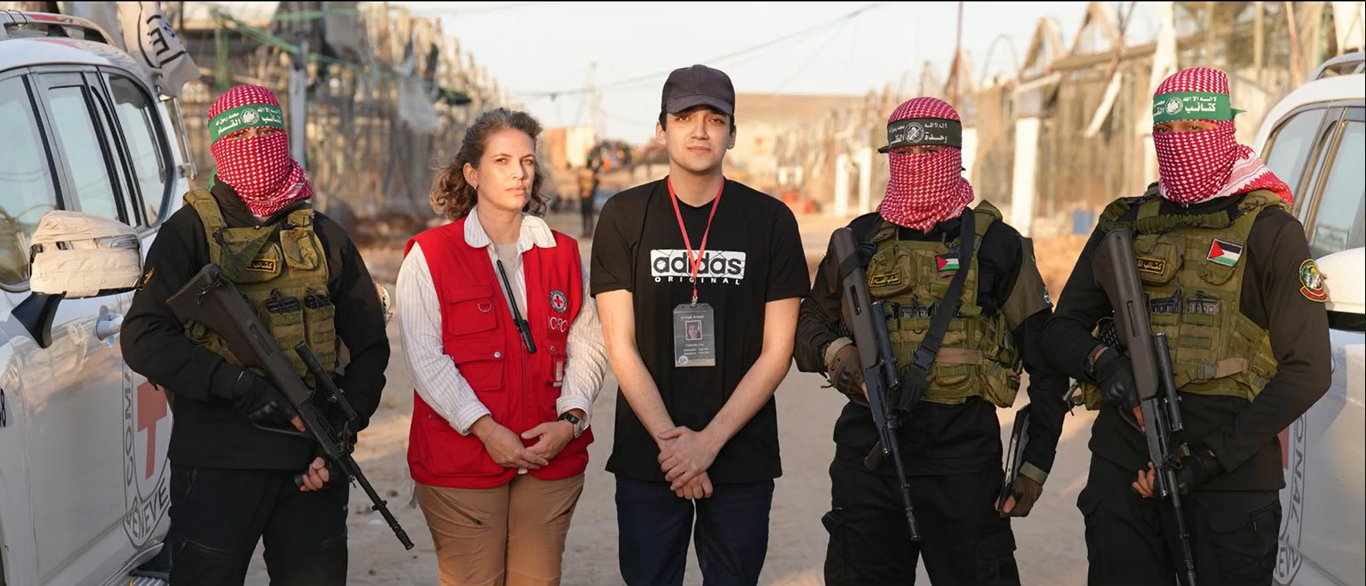Tunis, May 1, 2025 On International Workers’ Day, Tunisia’s capital witnessed significant demonstrations both in support of and against President Kais Saied, highlighting the nation’s escalating political tensions.
Opponents of President Saied gathered on Habib Bourguiba Avenue, chanting slogans such as “Saied go away, you are a dictator” and “The people want the fall of the regime,” echoing sentiments from the 2011 Arab Spring uprising. This marked the second major opposition protest within a week, signaling growing concern over what many perceive as a drift toward authoritarianism.
Simultaneously, supporters of President Saied assembled on the same avenue, voicing their backing with chants like “No to foreign interference” and “The people want Saied again.” The presence of both groups on the same street necessitated a substantial deployment of riot police to maintain order and prevent potential clashes.
The demonstrations were sparked by recent government actions, including the arrest of prominent lawyer and former judge Ahmed Souab, a well-known critic of President Saied. Souab’s detention, along with the sentencing of opposition leaders on conspiracy charges, has drawn criticism from international entities such as France, Germany, and the United Nations. President Saied dismissed these criticisms, labeling them as unwarranted interference in Tunisia’s sovereignty.
Since assuming expanded powers in 2021 by dissolving the elected parliament and taking control of the judiciary, President Saied has faced accusations of undermining Tunisia’s democratic institutions. His administration maintains that these measures are necessary to combat corruption and restore order. Nevertheless, the imprisonment of numerous political figures, including leaders from major parties, has intensified concerns about the state of democracy in the country.
As Tunisia navigates this period of political unrest, the contrasting rallies underscore the nation’s deep divisions and the challenges ahead in achieving political reconciliation and stability.
Source; Al Jazeera



